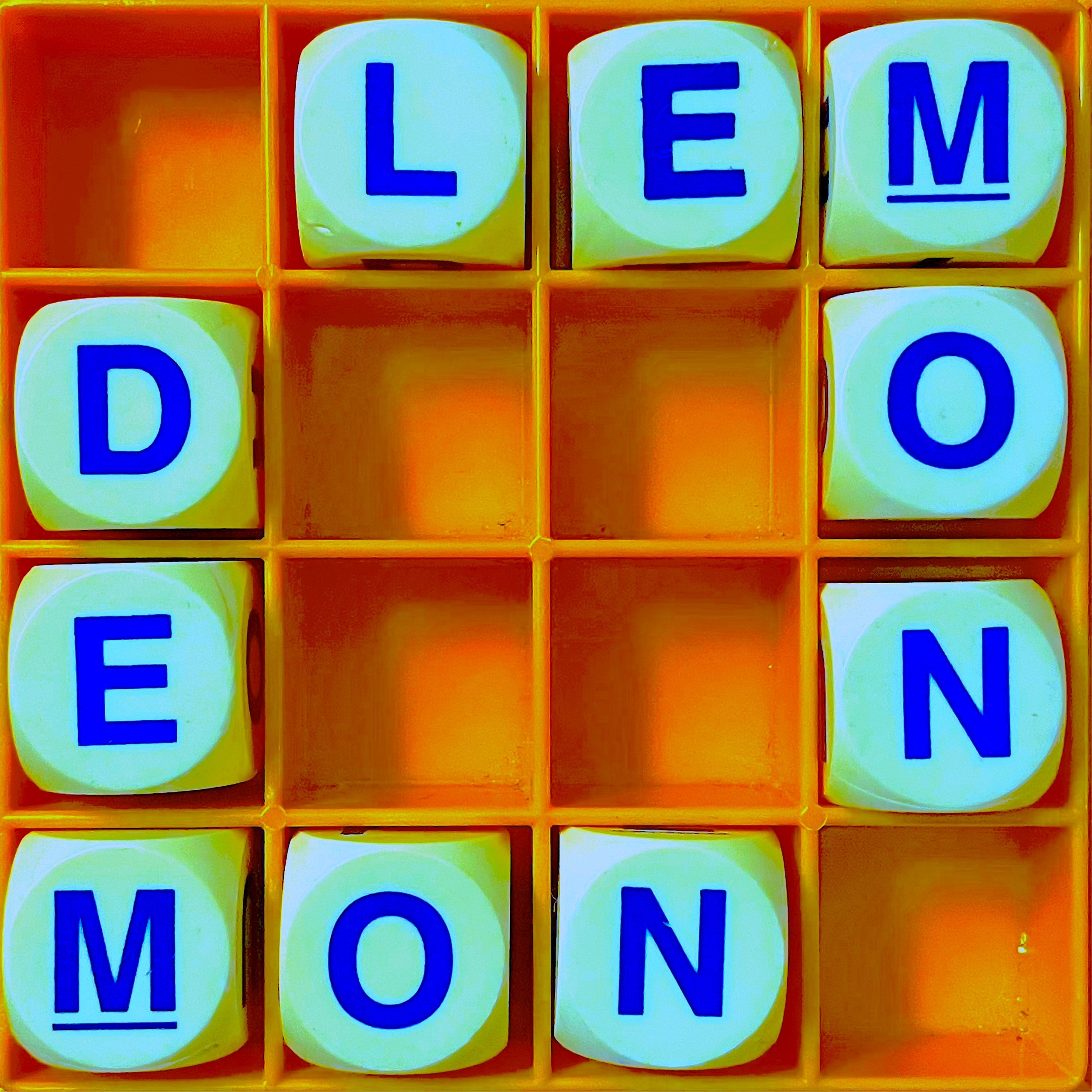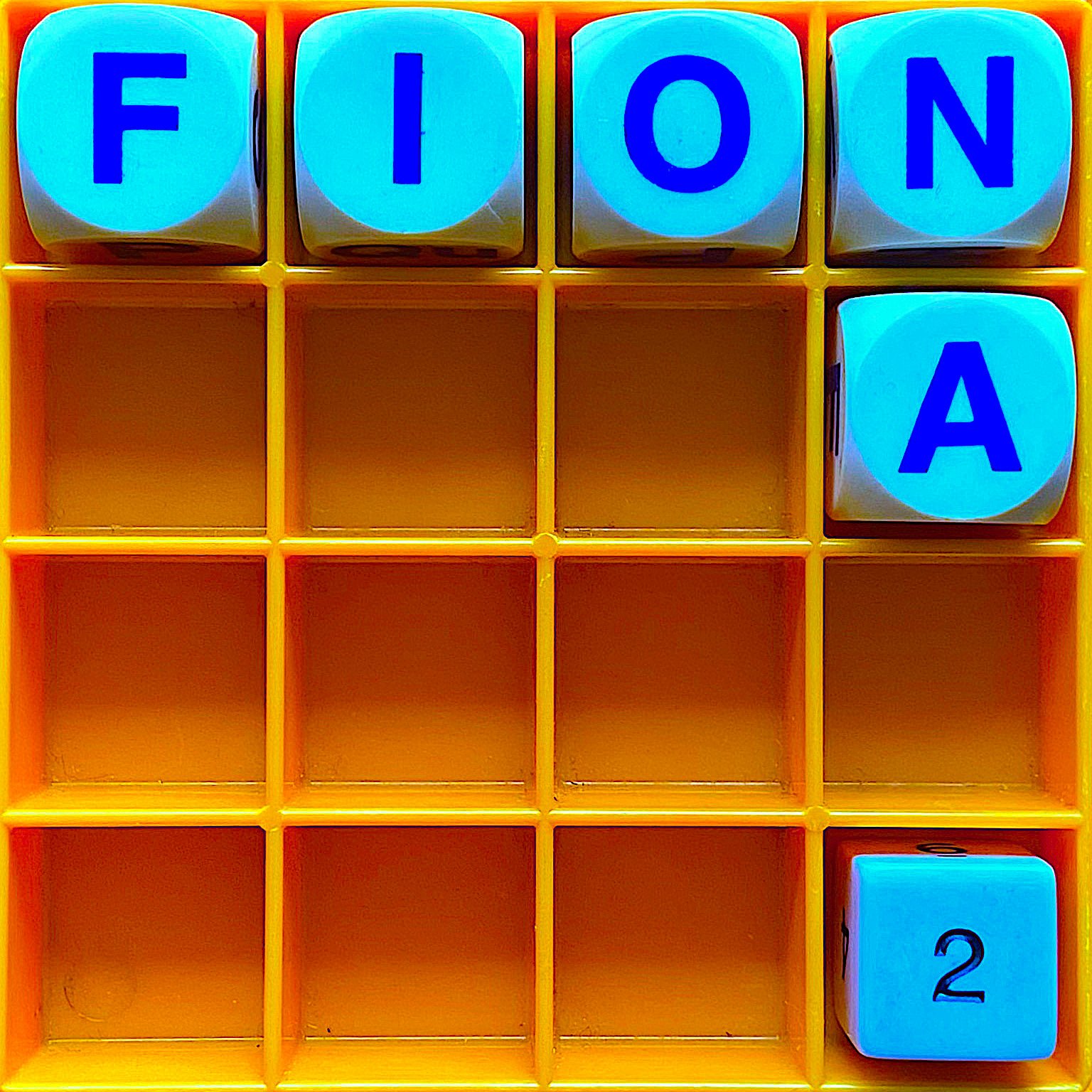AJ Jacobs makes The Puzzler podcast, wrote The Puzzler book, and sometimes turns his whole life into a puzzle. He comes bearing word games, explanations of anagrams being used to precipitate wars and were key evidence in trials, tips for writing with a quill, below-the-knee insults, and tales of living constitutionally.
Read moreAllusionist 166. Fiona part 2
“I don't think that anyone should come away from this conversation not wanting to use the name Fiona. I think this is a beautiful and rich history. It might not be quite the history that you imagined, but I think it's a beautiful history," says writer and performer Harry Josie Giles. She and PhD researcher Moll Heaton-Callaway investigate this complicated name with fascinating history, in this second of a pair of episodes about the name Fiona.
Read moreAllusionist 165. Fiona part 1
A lot of people assume that Fiona is a very old Scottish name, but the first known Scottish Fiona is from the 1890s: Fiona Macleod, the enormously popular novelist of Scotland's Celtic Revival movement. But when she suddenly stopped writing in 1905...and there turned out to be far more surprises about Fiona Macleod than the novelty of her name. Writer and performer Harry Josie Giles and PhD researcher Moll Callaway-Heaton consider the first Scottish Fiona.
This is part one of a pair of episodes about the name Fiona; part two will explore the etymology of the name and similar ones in various languages, and examine the first appearance of Fiona in literature, which comes with its own cocktail of complication.
Read moreAllusionist 106. Typo Demon
Ever misspelled a word or committed a typo? It wasn’t your fault; you were demonically possessed. Ian Chillag from Everything is Alive podcast introduces us to Titivillus, the typo demon.
Read moreAllusionist 61: In Your Hand
"It's sort of frozen body language; that's what handwriting analysis is about."
Since it caught on a couple of hundred years ago, graphology - analysing handwriting to deduce characteristics of the writer - has struggled to be taken seriously as a practice. But undoubtedly, there are things about ourselves that we can't help but reveal in our handwriting.
Read moreAllusionist 24: Spill Your Guts
iTUNES • RSS • MP3
It's cathartic; it's useful historical records; and it might help you behave better on public transport. Neil Katcher and Dave Nadelberg from Mortified discuss the art and practice of keeping a diary.
ADDITIONAL MATERIALS:
This website has a fair amount of information about Samuel Pepys, including his diary entries describing the Plague and the Great Fire of London - and some of the entries he wrote in code because they're a bit saucy.
Pepys wrote his diary in shorthand, so snoopers couldn't understand it. Read a translation at Project Gutenberg.
Anne Frank, meanwhile, edited a version of her diary for possible public consumption, which was the one published in 1947. The longer, private version was recently published.
Mortification comes in many forms. All of which are funnier when they happened to someone else.
My friend Jo Neary has been keeping an illustrated diary for decades. Occasionally, she shares some pages online, to my delight.
Which of these medical acronyms will follow in LOL's footsteps and be in common use in textspeak within the next 30 years?
Having trouble translating DAMHIKT, UDS or POTF? Acronym Finder is here to help.
RANDOMLY SELECTED WORD FROM THE DICTIONARY:
horst
CREDITS:
Dave Nadelberg and Neil Katcher run Mortified. It's a weekly podcast, a stage show in many cities around the world, a documentary, a TV series, and books; find all these Mortified things at getmortified.com.
This episode was produced by me, Helen Zaltzman. Thanks for the advice, Eleanor McDowall and Martin Austwick (who also provided all the music).
Communicate with me publicly at facebook.com/allusionistshow, twitter.com/allusionistshow and twitter.com/helenzaltzman.
- HZ
Allusionist 21: Eponyms I: The Ballad of Bic and Biro
iTUNES • RSS • MP3
Naming something after yourself: a grand display of egomania, or the humble willingness to be overshadowed by your own product?
Stationery expert James Ward tells the tale of the people who begat the eponymous ballpoint pens Bic and Biro, because, according to 99% Invisible's Roman Mars, "When it comes to word origins, an eponym is the shortest bet you’re going to get a good story out of it."
ADDITIONAL READING:
Eponyms are swarming all over the place! Particularly when it comes to medical terms, about which there are lots of good little stories about the latter at Whonamedit? Looks like some of those eponymizers are very high achievers.
You can read James Ward's delightful book Adventures in Stationery (AKA The Perfection of the Paperclip in some territories), and/or you can read about James Ward and his book to whet your appetite.
Learn more about Thomas 'Bowdlerization' Bowdler. Also listener Mededitor shared this post about bowdlerized Shakespeare.
Here's a brief history of pens; here's a slightly longer history of pens; and here's the picture dictionary version of the corporate history of Bic.
Here's a transcript of this episode.
Here's Roman's tweet that started this whole thing.
If you were creating an eponymous product, what would it be? Mine would be something which doesn't work until the very last minute, just before you throw it away in frustration.
RANDOMLY SELECTED WORD FROM THE DICTIONARY:
jacquerie
CREDITS:
Roman Mars is El Groso of 99% Invisible. Find him at twitter.com/romanmars, and 99% Invisible at 99pi.org.
James Ward is El Groso of Boring Conference. Find him at twitter.com/iamjamesward.com and at iamjamesward.com. And in case you've already forgotten from where I linked to it above, you can buy his book Adventures in Stationery.
This episode was produced by me, Helen Zaltzman. Thanks to Martin Austwick for the music and editorial help, and to Seth and Alison for letting me and Roman record in their Wendy House.
Communicate with me at facebook.com/allusionistshow, twitter.com/allusionistshow and twitter.com/helenzaltzman.








